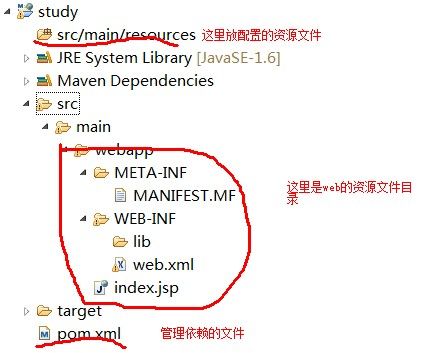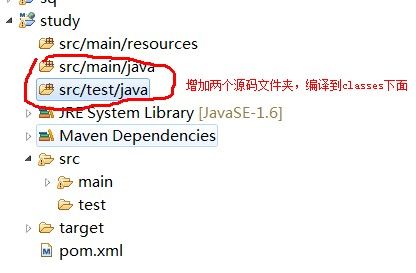- SpringMVC架构介绍
丹_妮
spring
MVC框架要做的事情?1)将url映射到java类或java类的方法2)封装用户提交的数据3)处理请求-调用相关的业务处理-封装响应数据4)将响应的数据进行渲染jsphtml为什么要学习SpringMVC?性能较struts2好简单、便捷、易学天生和Spring无缝集成,使用Spring的IOC和AOP还有事务使用约定由于配置能够进行简单的junit测试支持restful风格异常处理本地化、国际化
- 如何进行架构技术方案选型?
猫咪张
系统架构设计strutsspringmvcjsf架构设计ejb
在架构设计时,通常面临的一个难题是,如何选择架构的技术方案.这也是各种项目都会碰到的问题.我们到底是选择C/S,B/S模式,如果选择C/S,那么到底是三层C/S还是两层,到底要不要分布式,B/S的展示层是自己写MVC,还是应用已有的开源的如SpringMVC,Struts2.0,JSF技术。总之,可选的确实是太多了。那么怎么去选择呢?这个问题确实有点难,但也有解决方法的。首先,我们需要研究我们项目
- Apache Struts2 S2-005 远程代码执行漏洞
夭-夜
strutsapachejava
文章目录基础知识一、通过BUMP构造数据包1.repeater模块构造post包2.浏览器访问以下链接二、反弹shell1.开启监听2.构造数据包总结基础知识ApacheStruts2ApacheStruts2框架是一个用于开发JavaEE网络应用程序的Web框架,质上相当于一个servlet,在MVC设计模式中,Struts2作为控制器(Controller)来建立模型与视图的数据交互。Stru
- Java编程开发新手学习:数组方法的应用猜字母游戏
Java小辰
Java是一种可以撰写跨平台应用软件的面向对象的程序设计语言。Java技术具有卓越的通用性、高效性、平台移植性和安全性,广泛应用于PC、数据中心、游戏控制台、科学超级计算机、移动电话和互联网,同时拥有全球最大的开发者专业社群。给你学习路线:html-css-js-jq-javase-数据库-jsp-servlet-Struts2-hibernate-mybatis-spring4-springmv
- 现在程序员这么多,我学习java这块应该学到什么程度才能不被淘汰呢?
渡你眉间山河
一、夯实基础JavaSE这是基础,一定要好好学习!Java语法,面向对象(包括类、对象、方法、继承、封装、抽象、多态、消息解析等),常见API,数据结构,集合框架,设计模式(包括创建型、结构型、行为型),多线程和并发,I/O流,Stream,网络编程。JavaEEJavaEE是在JavaSE的基础上构建的,JavaEE容器,Web容器,常用框架(包括Struts2、Hibernate、Mybati
- JAVA Web学习(20)___第14章Struts2基础
岁月静好浅笑安然
第14章Struts2基础14.1Struts2概述14.1.1理解MVC原理14.1.2Struts2框架的产生14.1.3Struts2的结构体系14.2Struts2入门14.2.1Struts2的获取与放置开发struts项目必须添加的类库文件名称说明struts2-core-2.5.20.jarStruts2的核心类库xwork-core-2.1.6.jarXworkd的核心类库ognl
- struts2_ognl入门
小漫画ing
ognl的概述:1、之前在web阶段,学过el表达式,el表达式在jsp中获取域对象中的值。2、ognl也是一种表达式,而这个种表达式的功能更加强大。(1)在struts里面操作只栈数据。(2)一般把OGNL在Struts2操作,和Struts2标签一起使用操作值栈。3、OGNL不是Struts2的一部分,单独项目,经常和Struts2一起使用而已。(1)使用OGNL时候首先导入jar包,Stru
- SSH框架之Spring+Struts2+Hibernate整合篇
小小一技术驿站
回顾-Hibernate框架ORM:对象关系映射.把数据库表和JavaBean通过映射的配置文件映射起来,操作JavaBean对象,通过映射的配置文件生成SQL语句,自动执行.操作数据库.1:类名.hbm.xml映射配置文件.2:hibernate.cfg.xml核心配置文件.3:使用Hibernate提供的API操作.Struts2框架:和客户端进行交互1.在web.xml配置过滤器.2.str
- Struts2中的action中result中的type有哪些类型
阿立聊代码
strutsstruts2.0
Struts2框架默认配置中已经提供了很多的result类型,可以打开struts-default.xml配置文件来查看。chain:Action链式处理的结果类型,也就是将结果转发到这个action中。chart:整合JFreeChart的结果类型dispatcher:用于整合JSP的结果类型freemarker:用于整合freemarker结果类型。httpheader:用于控制特殊的HTTP
- java进阶学习第一天_Java全栈开发springmvc学习笔记第一天
35612123
java进阶学习第一天
SpringmvcJavaEE体系结构什么是mvc?原始的mvc:Mvc:什么springmvc?Springmvc是一个web层mvc框架,类似struts2.Springmvc和spring关系?Springmvc是spring的一部分。Springmvc执行原理(流程)Struts2:控制层:strutsPrepareAndExcuteFilter–前端控制器/*l接受请求l转发请求前端控制
- Strust2远程代码执行漏洞(S2-033)
锋刃科技
安全安全
前言ApacheStrut2REST插件存在漏洞,可以远程执行任意指令影响版本Struts2.3.20–Struts2.3.28(不包括2.3.20.3和2.3.24.3)。环境搭建dockerpullmedicean/vulapps:s_struts2_s2-033dockerrun-d-p80:8080medicean/vulapps:s_struts2_s2-033打开your-IP:80/
- [旧文系列] Struts2历史高危漏洞系列-part2:S2-007/S2-008/S2-009
xc8qanAFenlka@x1
struts安全web安全java
文章目录关于前言S2-007漏洞复现与分析可回显PoC漏洞修复S2-008漏洞复现与分析Vuln-1:RemotecommandexecutioninCookieInterceptorVuln-2:RemotecommandexecutioninDebuggingInterceptorVuln-2:可回显PoC漏洞修复S2-009漏洞复现与分析可回显PoC漏洞修复Reference关于系列是笔者将
- 0x26.Apache Struts2远程代码执行漏洞(S2-019)复现
半情调
墨者学院墨者学院S2-019
s2-019:动态方法调用是一种已知会施加可能的安全漏洞的机制,但到目前为止,它默认启用,警告用户应尽可能将其关闭;构造poc:?debug=command&expression=#f=#_memberAccess.getClass().getDeclaredField('allowStaticMethodAccess'),#f.setAccessible(true),#f.set(#_membe
- Struts2 S2-045漏洞复现
你能拿我咋的
渗透测试漏洞复现strutsjavaweb安全
1.漏洞概述OGNL是ObjectGraphicNavigationLanguage(对象图导航语言)的缩写,它是一个开源项目。Struts框架使用OGNL作为默认的表达式语言。struts2的rce本质都是一样的(除了S2-052以外),都是Struts2框架执行了恶意用户传进来的OGNL表达式,造成远程代码执行。可以造成“命令执行、服务器文件操作、打印回显、获取系统属性、危险代码执行”等,只不
- JavaWeb编程实战宝典(5)___ 第5章 编写Struts2第一个程序
岁月静好浅笑安然
第5章编写Struts2第一个程序5.1Struts2的MVC模式Struts2中的控制器主要有如下4个功能简单验证复制验证商业逻辑流控制Struts2框架结构可分为以下4部分JSP/Struts2标签(视图层V层)ActionSupport的子类(控制层C层)处理业务逻辑和数据逻辑的JavaBean(模型层M层)用于保存Struts2配置的struts.xml文件5.2Struts2的结构体系5
- OGNL
虫儿飞ZLEI
layout:posttitle:OGNLsubtitle:OGNLdate:2018-05-31author:ZLheader-img:img/20180531.jpgcatalog:truetags:-OGNLOGNL(对象视图导航语言)${user.addr.name}这种写法就叫对象视图导航.OGNL不仅仅可以视图导航.支持比EL表达式更加丰富的功能.使用导包在struts2的包中就已经包
- 2018年java编程发展空间大吗?
Java小辰
Java是一种可以撰写跨平台应用软件的面向对象的程序设计语言。Java技术具有卓越的通用性、高效性、平台移植性和安全性,广泛应用于PC、数据中心、游戏控制台、科学超级计算机、移动电话和互联网,同时拥有全球最大的开发者专业社群。给你学习路线:html-css-js-jq-javase-数据库-jsp-servlet-Struts2-hibernate-mybatis-spring4-springmv
- 墨者学院-Apache Struts2远程代码执行漏洞(S2-032)复现
nohands_noob
靶场地址:https://www.mozhe.cn/bug/detail/NWZ1OHFUbDgxV3JNdDhMa0RHQ3BnZz09bW96aGUmozhe漏洞编号:CVE-2016-3081影响范围:Struts2.3.20-StrutsStruts2.3.28(2.3.20.3和2.3.24.3除外)漏洞原理:当启用动态方法调用时,可以传递可用于在服务器端执行任意代码的恶意表达式任意命令
- struts2简介
活着_3840
Struts2是一个基于MVC设计模式的Web应用框架,它本质上相当于一个servlet,在MVC设计模式中,Struts2作为控制器(Controller)来建立模型与视图的数据交互。struts2使用的是拦截器的概念,结合各种过滤器获取url,与struts1最大的区别在于1是单例的(所有请求共享一个实例),2是多例的(一个请求一个实例),还引入“值栈”概念,可以达到与servletAPI完全
- 当Struts2遇到防火墙,你的思路够骚吗?
CanMeng
一、背景偶然碰到一个小站存在st2-046代码远程执行漏洞,心里美滋滋。执行whoami查看自己是什么权限已经是root了,就尝试上传一个webshell但是却提示上传失败,页面不存在上传txt显示成功经过测试,服务器装有一些防火墙之类的东西或者是安全策略,只要上传的文件里包含可执行代码就上传失败但是转念一想我为什么非要传webshell,传上去之后不还是要提权,弄到他的ssh权限。于是冷静思考了
- CVE-2017-12149漏洞复现
黑客大佬
漏洞复现web安全安全网络python
服务攻防-中间件安全&CVE复现&Weblogic&Jenkins&GlassFish漏洞复现中间件及框架列表:IIS,Apache,Nginx,Tomcat,Docker,Weblogic,JBoos,WebSphere,Jenkins,GlassFish,Jira,Struts2,Laravel,Solr,Shiro,Thinkphp,Spring,Flask,jQuery等1、中间件-Web
- 过滤器和拦截器的区别
苦风
过滤器(Filter)过滤器,是在javaweb中将你传入的request、response提前过滤掉一些信息,或者提前设置一些参数。然后再传入Servlet或Struts2的action进行业务逻辑处理。比如过滤掉非法url(不是login.do的地址请求,如果用户没有登陆都过滤掉),或者在传入Servlet或Struts2的action前统一设置字符集,或者去除掉一些非法字符。拦截器(Inte
- Java编程学习:集合框架详解
Java小辰
Java是一种可以撰写跨平台应用软件的面向对象的程序设计语言。Java技术具有卓越的通用性、高效性、平台移植性和安全性,广泛应用于PC、数据中心、游戏控制台、科学超级计算机、移动电话和互联网,同时拥有全球最大的开发者专业社群。给你学习路线:html-css-js-jq-javase-数据库-jsp-servlet-Struts2-hibernate-mybatis-spring4-springmv
- struts2 向值栈中放数据的三种方式
DouDouZH
一、获取值栈的对象,调用值栈的set方法1、代码ValuesStackAction1.javapackagework.zhangdoudou.Action;importcom.opensymphony.xwork2.ActionContext;importcom.opensymphony.xwork2.ActionSupport;importcom.opensymphony.xwork2.util
- POI异步导入Excel兼容xsl和xlsx
weixin_33775572
数据库jsonjava
项目架构:spring+struts2+hibernate4+oracle需求:用户导入excel文件,导入到相应的数据表中,要求提供导入模板,支持xls和xlsx文件思路分析:1、提供一个下载链接,点击下载,可以使超链接,src直接是项目路径加文件名。2、通过上传文件,服务器接收上传,返回一个上传后的服务器本地路径,通过ajax异步赋值到jsp的路径隐藏域。3、ajax异步提交导入请求,后台处理
- 定制datatable ajax发送给服务端的数据
金刚_30bf
官网描述http://www.datatables.club/manual/server-side.html#initdtDT自动请求的参数(Sentparameters)当开启了服务器模式时,DataTables会发送如下参数到服务器ps:需要说明的是如果你是Java开发者,那么使用struts2的需要注意,会有错误抛出,因为处理不了类似columns[i][search][regex]的变量如
- Apache Log4j2漏洞复现(反弹shell)
安全菜
apache
0x01漏洞描述ApacheLog4j2是一款优秀的Java日志框架。2021年11月24日,阿里云安全团队向Apache官方报告了ApacheLog4j2远程代码执行漏洞。由于ApacheLog4j2某些功能存在递归解析功能,攻击者可直接构造恶意请求,触发远程代码执行漏洞。漏洞利用无需特殊配置,经阿里云安全团队验证,ApacheStruts2、ApacheSolr、ApacheDruid、Apa
- java编程新手入门基础知识学习
Java小辰
Java是一种可以撰写跨平台应用软件的面向对象的程序设计语言。Java技术具有卓越的通用性、高效性、平台移植性和安全性,广泛应用于PC、数据中心、游戏控制台、科学超级计算机、移动电话和互联网,同时拥有全球最大的开发者专业社群。给你学习路线:html-css-js-jq-javase-数据库-jsp-servlet-Struts2-hibernate-mybatis-spring4-springmv
- Spring、Spring MVC、Struts2、、优缺点整理大纲
冯匿
Spring及其优点大部分项目都少不了Spring的身影,为什么大家对他如此青睐,而且对他的追捧丝毫没有减退之势呢Spring是什么:Spring是一个轻量级的DI和AOP容器框架。说它轻量级有一大部分原因是相对与EJB的(虽然本人从没有接触过EJB的应用),重要的是,Spring是非侵入式的,基于spring开发的应用一般不依赖于spring的类。DI:称作依赖注入(DependencyInje
- BUUCTF-Real-[struts2]s2-001
真的学不了一点。。。
漏洞复现与研究javastruts
漏洞描述struts2漏洞S2-001是当用户提交表单数据且验证失败时,服务器使用OGNL表达式解析用户先前提交的参数值,%{value}并重新填充相应的表单数据。例如,在注册或登录页面中,如果提交失败,则服务器通常默认情况下将返回先前提交的数据。由于服务器用于%{value}对提交的数据执行OGNL表达式解析,因此服务器可以直接发送有效载荷来执行命令。漏洞poc验证经过poc验证,我们发现[st
- 设计模式介绍
tntxia
设计模式
设计模式来源于土木工程师 克里斯托弗 亚历山大(http://en.wikipedia.org/wiki/Christopher_Alexander)的早期作品。他经常发表一些作品,内容是总结他在解决设计问题方面的经验,以及这些知识与城市和建筑模式之间有何关联。有一天,亚历山大突然发现,重复使用这些模式可以让某些设计构造取得我们期望的最佳效果。
亚历山大与萨拉-石川佳纯和穆雷 西乐弗斯坦合作
- android高级组件使用(一)
百合不是茶
androidRatingBarSpinner
1、自动完成文本框(AutoCompleteTextView)
AutoCompleteTextView从EditText派生出来,实际上也是一个文本编辑框,但它比普通编辑框多一个功能:当用户输入一个字符后,自动完成文本框会显示一个下拉菜单,供用户从中选择,当用户选择某个菜单项之后,AutoCompleteTextView按用户选择自动填写该文本框。
使用AutoCompleteTex
- [网络与通讯]路由器市场大有潜力可挖掘
comsci
网络
如果国内的电子厂商和计算机设备厂商觉得手机市场已经有点饱和了,那么可以考虑一下交换机和路由器市场的进入问题.....
这方面的技术和知识,目前处在一个开放型的状态,有利于各类小型电子企业进入
&nbs
- 自写简单Redis内存统计shell
商人shang
Linux shell统计Redis内存
#!/bin/bash
address="192.168.150.128:6666,192.168.150.128:6666"
hosts=(${address//,/ })
sfile="staticts.log"
for hostitem in ${hosts[@]}
do
ipport=(${hostitem
- 单例模式(饿汉 vs懒汉)
oloz
单例模式
package 单例模式;
/*
* 应用场景:保证在整个应用之中某个对象的实例只有一个
* 单例模式种的《 懒汉模式》
* */
public class Singleton {
//01 将构造方法私有化,外界就无法用new Singleton()的方式获得实例
private Singleton(){};
//02 申明类得唯一实例
priva
- springMvc json支持
杨白白
json springmvc
1.Spring mvc处理json需要使用jackson的类库,因此需要先引入jackson包
2在spring mvc中解析输入为json格式的数据:使用@RequestBody来设置输入
@RequestMapping("helloJson")
public @ResponseBody
JsonTest helloJson() {
- android播放,掃描添加本地音頻文件
小桔子
最近幾乎沒有什麽事情,繼續鼓搗我的小東西。想在項目中加入一個簡易的音樂播放器功能,就像華為p6桌面上那麼大小的音樂播放器。用過天天動聽或者QQ音樂播放器的人都知道,可已通過本地掃描添加歌曲。不知道他們是怎麼實現的,我覺得應該掃描設備上的所有文件,過濾出音頻文件,每個文件實例化為一個實體,記錄文件名、路徑、歌手、類型、大小等信息。具體算法思想,
- oracle常用命令
aichenglong
oracledba常用命令
1 创建临时表空间
create temporary tablespace user_temp
tempfile 'D:\oracle\oradata\Oracle9i\user_temp.dbf'
size 50m
autoextend on
next 50m maxsize 20480m
extent management local
- 25个Eclipse插件
AILIKES
eclipse插件
提高代码质量的插件1. FindBugsFindBugs可以帮你找到Java代码中的bug,它使用Lesser GNU Public License的自由软件许可。2. CheckstyleCheckstyle插件可以集成到Eclipse IDE中去,能确保Java代码遵循标准代码样式。3. ECLemmaECLemma是一款拥有Eclipse Public License许可的免费工具,它提供了
- Spring MVC拦截器+注解方式实现防止表单重复提交
baalwolf
spring mvc
原理:在新建页面中Session保存token随机码,当保存时验证,通过后删除,当再次点击保存时由于服务器端的Session中已经不存在了,所有无法验证通过。
1.新建注解:
? 1 2 3 4 5 6 7 8 9 10 11 12 13 14 15 16 17 18
- 《Javascript高级程序设计(第3版)》闭包理解
bijian1013
JavaScript
“闭包是指有权访问另一个函数作用域中的变量的函数。”--《Javascript高级程序设计(第3版)》
看以下代码:
<script type="text/javascript">
function outer() {
var i = 10;
return f
- AngularJS Module类的方法
bijian1013
JavaScriptAngularJSModule
AngularJS中的Module类负责定义应用如何启动,它还可以通过声明的方式定义应用中的各个片段。我们来看看它是如何实现这些功能的。
一.Main方法在哪里
如果你是从Java或者Python编程语言转过来的,那么你可能很想知道AngularJS里面的main方法在哪里?这个把所
- [Maven学习笔记七]Maven插件和目标
bit1129
maven插件
插件(plugin)和目标(goal)
Maven,就其本质而言,是一个插件执行框架,Maven的每个目标的执行逻辑都是由插件来完成的,一个插件可以有1个或者几个目标,比如maven-compiler-plugin插件包含compile和testCompile,即maven-compiler-plugin提供了源代码编译和测试源代码编译的两个目标
使用插件和目标使得我们可以干预
- 【Hadoop八】Yarn的资源调度策略
bit1129
hadoop
1. Hadoop的三种调度策略
Hadoop提供了3中作业调用的策略,
FIFO Scheduler
Fair Scheduler
Capacity Scheduler
以上三种调度算法,在Hadoop MR1中就引入了,在Yarn中对它们进行了改进和完善.Fair和Capacity Scheduler用于多用户共享的资源调度
2. 多用户资源共享的调度
- Nginx使用Linux内存加速静态文件访问
ronin47
Nginx是一个非常出色的静态资源web服务器。如果你嫌它还不够快,可以把放在磁盘中的文件,映射到内存中,减少高并发下的磁盘IO。
先做几个假设。nginx.conf中所配置站点的路径是/home/wwwroot/res,站点所对应文件原始存储路径:/opt/web/res
shell脚本非常简单,思路就是拷贝资源文件到内存中,然后在把网站的静态文件链接指向到内存中即可。具体如下:
- 关于Unity3D中的Shader的知识
brotherlamp
unityunity资料unity教程unity视频unity自学
首先先解释下Unity3D的Shader,Unity里面的Shaders是使用一种叫ShaderLab的语言编写的,它同微软的FX文件或者NVIDIA的CgFX有些类似。传统意义上的vertex shader和pixel shader还是使用标准的Cg/HLSL 编程语言编写的。因此Unity文档里面的Shader,都是指用ShaderLab编写的代码,然后我们来看下Unity3D自带的60多个S
- CopyOnWriteArrayList vs ArrayList
bylijinnan
java
package com.ljn.base;
import java.util.ArrayList;
import java.util.Iterator;
import java.util.List;
import java.util.concurrent.CopyOnWriteArrayList;
/**
* 总述:
* 1.ArrayListi不是线程安全的,CopyO
- 内存中栈和堆的区别
chicony
内存
1、内存分配方面:
堆:一般由程序员分配释放, 若程序员不释放,程序结束时可能由OS回收 。注意它与数据结构中的堆是两回事,分配方式是类似于链表。可能用到的关键字如下:new、malloc、delete、free等等。
栈:由编译器(Compiler)自动分配释放,存放函数的参数值,局部变量的值等。其操作方式类似于数据结构中
- 回答一位网友对Scala的提问
chenchao051
scalamap
本来准备在私信里直接回复了,但是发现不太方便,就简要回答在这里。 问题 写道 对于scala的简洁十分佩服,但又觉得比较晦涩,例如一例,Map("a" -> List(11,111)).flatMap(_._2),可否说下最后那个函数做了什么,真正在开发的时候也会如此简洁?谢谢
先回答一点,在实际使用中,Scala毫无疑问就是这么简单。
- mysql 取每组前几条记录
daizj
mysql分组最大值最小值每组三条记录
一、对分组的记录取前N条记录:例如:取每组的前3条最大的记录 1.用子查询: SELECT * FROM tableName a WHERE 3> (SELECT COUNT(*) FROM tableName b WHERE b.id=a.id AND b.cnt>a. cnt) ORDER BY a.id,a.account DE
- HTTP深入浅出 http请求
dcj3sjt126com
http
HTTP(HyperText Transfer Protocol)是一套计算机通过网络进行通信的规则。计算机专家设计出HTTP,使HTTP客户(如Web浏览器)能够从HTTP服务器(Web服务器)请求信息和服务,HTTP目前协议的版本是1.1.HTTP是一种无状态的协议,无状态是指Web浏览器和Web服务器之间不需要建立持久的连接,这意味着当一个客户端向服务器端发出请求,然后We
- 判断MySQL记录是否存在方法比较
dcj3sjt126com
mysql
把数据写入到数据库的时,常常会碰到先要检测要插入的记录是否存在,然后决定是否要写入。
我这里总结了判断记录是否存在的常用方法:
sql语句: select count ( * ) from tablename;
然后读取count(*)的值判断记录是否存在。对于这种方法性能上有些浪费,我们只是想判断记录记录是否存在,没有必要全部都查出来。
- 对HTML XML的一点认识
e200702084
htmlxml
感谢http://www.w3school.com.cn提供的资料
HTML 文档中的每个成分都是一个节点。
节点
根据 DOM,HTML 文档中的每个成分都是一个节点。
DOM 是这样规定的:
整个文档是一个文档节点
每个 HTML 标签是一个元素节点
包含在 HTML 元素中的文本是文本节点
每一个 HTML 属性是一个属性节点
注释属于注释节点
Node 层次
- jquery分页插件
genaiwei
jqueryWeb前端分页插件
//jquery页码控件// 创建一个闭包 (function($) { // 插件的定义 $.fn.pageTool = function(options) { var totalPa
- Mybatis与Ibatis对照入门于学习
Josh_Persistence
mybatisibatis区别联系
一、为什么使用IBatis/Mybatis
对于从事 Java EE 的开发人员来说,iBatis 是一个再熟悉不过的持久层框架了,在 Hibernate、JPA 这样的一站式对象 / 关系映射(O/R Mapping)解决方案盛行之前,iBaits 基本是持久层框架的不二选择。即使在持久层框架层出不穷的今天,iBatis 凭借着易学易用、
- C中怎样合理决定使用那种整数类型?
秋风扫落叶
c数据类型
如果需要大数值(大于32767或小于32767), 使用long 型。 否则, 如果空间很重要 (如有大数组或很多结构), 使用 short 型。 除此之外, 就使用 int 型。 如果严格定义的溢出特征很重要而负值无关紧要, 或者你希望在操作二进制位和字节时避免符号扩展的问题, 请使用对应的无符号类型。 但是, 要注意在表达式中混用有符号和无符号值的情况。
&nbs
- maven问题
zhb8015
maven问题
问题1:
Eclipse 中 新建maven项目 无法添加src/main/java 问题
eclipse创建maevn web项目,在选择maven_archetype_web原型后,默认只有src/main/resources这个Source Floder。
按照maven目录结构,添加src/main/ja
- (二)androidpn-server tomcat版源码解析之--push消息处理
spjich
javaandrodipn推送
在 (一)androidpn-server tomcat版源码解析之--项目启动这篇中,已经描述了整个推送服务器的启动过程,并且把握到了消息的入口即XmppIoHandler这个类,今天我将继续往下分析下面的核心代码,主要分为3大块,链接创建,消息的发送,链接关闭。
先贴一段XmppIoHandler的部分代码
/**
* Invoked from an I/O proc
- 用js中的formData类型解决ajax提交表单时文件不能被serialize方法序列化的问题
中华好儿孙
JavaScriptAjaxWeb上传文件FormData
var formData = new FormData($("#inputFileForm")[0]);
$.ajax({
type:'post',
url:webRoot+"/electronicContractUrl/webapp/uploadfile",
data:formData,
async: false,
ca
- mybatis常用jdbcType数据类型
ysj5125094
mybatismapperjdbcType
MyBatis 通过包含的jdbcType
类型
BIT FLOAT CHAR



